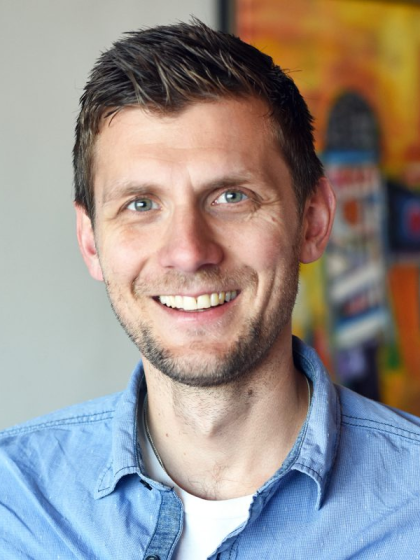
M. (Mario) Mauthe

Education/Training:
2003 - 2008 Study of Biology (major subjects: cell biology, genetics, virology) at the University of Tuebingen (Germany) and the University of Queensland, Brisbane (Australia).
2008 - 2013 PhD thesis in the laboratory of Prof. Tassula Proikas-Cezanne, Interfaculty Institute for Cell Biology, Department of Cell Biology, University of Tuebingen (Germany).
Positions and Employment:
2013- 2014 Postdoctoral fellow, UMC Utrecht, Utrecht University (The Netherlands)
2015- 2017 Postdoctoral fellow, UMC Groningen, Groningen University (The Netherlands)
2017- 2022 Senior postdoctoral position, Department of Biomedical Sciences of Cells and Systems), UMC Groningen, Groningen University (The Netherlands)
2023- now Assistent professor, Department of Biomedical Sciences , UMC Groningen, Groningen University (The Netherlands), http://bscs.umcg.nl/en/people/mario-mauthe/
Scientific career:
Since the start of his research career Mario Mauthe was focusing on understanding the cellular degradation and recycling pathway of autophagy. First, he studied in great detail the involvement of the WIPI protein family members in autophagy, looking in particular at their role in signaling, bacterial defense and metabolism. He conducted this research in the laboratory of Prof. Tassula Proikas-Cezanne, the main scientist that identified and characterized the function of WIPI proteins in autophagy.
When he first started joined the laboratory of Prof. Fulvio Reggiori to do his postdoctoral research, he broadened his expertise on autophagy and focused on the identification and studying of functions of autophagy-related (ATG) proteins outside the context of autophagy. These studies were mainly conducted in the frame of viral infections and led to the identification of novel, autophagy-independent functions of two central ATG proteins, i.e., ATG13 and FIP200.
As an assisten professor, his research now focusses on the relevance of autophagy in neurodegenerative diseases. A hallmark of numerous neurodegenerative disorders is the accumulation of neurotoxic protein aggregates. To study at the molecular level how autophagy, and more specifically a selective type of autophagy called aggrephagy, contributes to the clearance of these aggregates, he is employing a novel cellular system that was recently developed in his host laboratory. Furthermore, and based on his expertise on WIPI proteins, he began investigating WDR45/WIPI4 and its contribution to BPAN pathophysiology, supported by small but crucial grants provided by the NBIA patient organization (NBIADA) and the Dutch NBIA patient association.
He is a member of the of the German Society for Biochemistry and Molecular Biology (GBM), the women in autophagy (WIA) network, the Expertise Center Movement Disorders Groningen and board member of the Nordic Autophagy Society (NAS) and a review editor for several journals.
Engagement:
2018 Newsletter https://www.nbiadisorders.org/news-events/332-two-bpan-grants
2019 Patient's Day for rare movement disorders (NBIA section), Groningen, The Netherlands
2019 NBIA Disorders Association Family Conference, Charleston, USA (https://www.youtube.com/watch?v=yqOvJLICueU&list=PLmztLyM1oP1JEj_NHu5mTuqyMSxhey_qO&index=19&t=0s)
2019 University of Groningen/UMCG and Universidad de Chile (UCH) matchmaking event
2021 News article https://umcgresearch.org/w/teaching-from-bench-to-bedside
2022 Stichting Ijzersterk patient/contact day, Nationaal Park Hoge Veluwe, The Netherlands
2022 French BPAN patient symposium, Lyon, France
2023 Stichting Ijzersterk patient/contact day, Amsterdam, The Netherlands
2023 Member of the organizartion comittee for the 1st international BPAN workshop, Warsaw, Poland
2023 Polish NBIA patient conference, Warsaw, Poland
